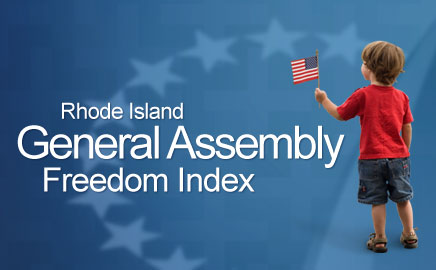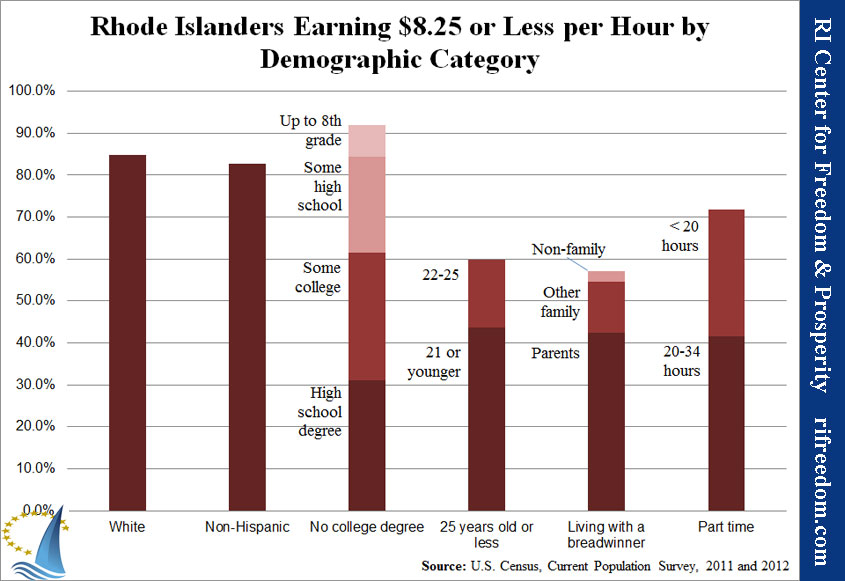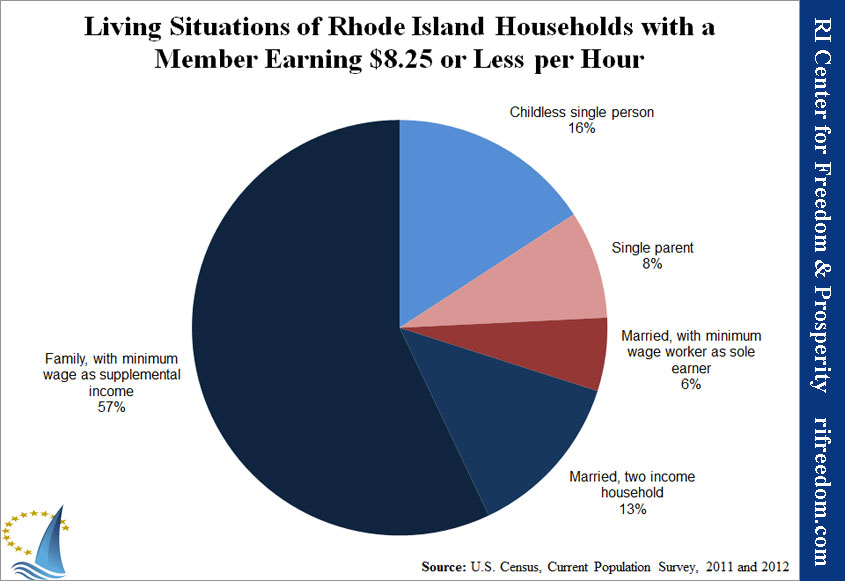Individual Property Rights in the Cross Hairs in the Ocean State
Homeowners, businesses, and other property owners should be aware that a series of bills under consideration in the Rhode Island General Assembly would undermine or erode their individual property rights — the foundation of the U.S. Constitution and the free-enterprise system.
In the name of vague environmental resource benefits, three bills in particular would systematically give the state, or new state and local agencies, authority to infringe upon the rights and freedoms of local property owners.
It appears that the state is seeking a larger role in centrally planning, mandating, or influencing how local land or property may or may not be utilized. The plans are so invasive that Rhode Islanders may be left wondering whether they own their land or merely lease it temporarily from the government.
1) House Bill 6099 would create a new, quasi-public statewide Ocean State Regional Water Authority, with a board consisting of a majority of members appointed by the mayors of Providence, Cranston, and North Providence, ostensibly with the goal of ensuring that enough water is available to communities throughout the state.
Perhaps most egregiously, the new Water Authority would have the power to enter without permission onto any property in Rhode Island to examine the land and drill and dig into the ground. It would also have powers of eminent domain, to take land that the board determines it needs for current or future use. It would also set rates for water and have authority to place liens on properties of delinquent customers, as well as to shut off their water.
The bill further allows the state to purchase or lease from the Providence water system or other local organizations that currently operate such systems and to bring in water from out of state. The purchase or lease price would not be not subject to Public Utilities Commission (PUC) or Division of Public Utilities and Carriers (DPUC) approval or proceedings, and the costs would be passed on to water customers via increased rates.
“(c) Notwithstanding anything in the general laws to the contrary, and without limiting the provisions of section 46-32-11 set forth above, neither the Rhode Island public utilities commission nor the Rhode Island division of public utilities and carriers shall have any jurisdiction, authority, or other power to approve, reject, review, or in any way affect any acquisition or the terms of any purchase and sale agreement or lease agreement.”
Going even farther, the legislation explicitly prohibits the PUC and DPUC from requiring that the water authority’s purchase or lease payments “benefit, directly or indirectly… the water ratepayers.” In this case, the question of ownership is broader: In publicly held water districts, the taxpayers and ratepayers are responsible for the liabilities of their systems, but under this legislation, they would not likewise be recipients of any of the benefits of ownership.
2) House Bill 5633 and Senate Bill 696 would use state grants and matching funds to pressure cities and towns to create “community preservation committees” (with a majority vote from residents), which would research and implement land purchase and development deals in keeping with ideals of sustainable development. The legislation would allow cities and towns to impose up to an additional 3% tax (renamed as a “surcharge”) on local property that would not be counted in any calculations or limits on the property tax levy.
The state would provide matching funds up to 100% of the additional surcharge, with the money coming from (among other places) an additional $20 fee on all real estate recording instruments (e.g., deeds).
In creating these new local committees, these bills would provide a new path for “affordable housing” or other “green” projects to be approved and funded locally. This presents two potential issues for existing property owners.
First, it is not unusual that the resulting subsidized developments are taxed at lower rates than most others — while existing property owners are subject to higher rights, even surpassing existing caps. This tax level disparity would make it significantly more expensive to live in unsubsidized areas.
Second, these committees, in furthering their preferred land purchase and development deals, may exempt projects from local zoning ordinances. In contrast, the way the legislation is constructed, the state government could impose requirements that the towns would have to follow. (One example already in the bill is a ban on “artificial turf.”)
While existing local governments would technically have to pass related projects and mandates, it isn’t clear whether the legislation permits them not to do so.
Unelected officials, coordinated and trained via a statewide infrastructure with its own agenda, would have new powers to determine local land use that would create disparate and inequitable tax structures. That all Rhode Island property owners would be forced fund this questionable activity via fees on standard transactions and new, renamed property taxes is clearly a program that infringes on property rights.
3) House Bill 5801 would require any “greenhouse gas emissions source” (as defined by the state Dept. of Environmental Management) in or doing business in Rhode Island to increase its tracking and reporting to the state, as well as impose direct fees on them for use of the DEM. The legislation would also make greenhouse gas emissions a focus of state economic development activities.
By charging commercial property and business owners additional fees or causing them to incur unnecessary expenses for conducting or reporting normal business activities, the state would be infringing on the rights of those owners.
Further, the idea that restricting or charging for greenhouse gas emissions can somehow be considered a serious part of an economic development activity is preposterous. Such fees would only be a further detriment to an already weak state economy that has been hampered by similar dubious statutes in the first place.



